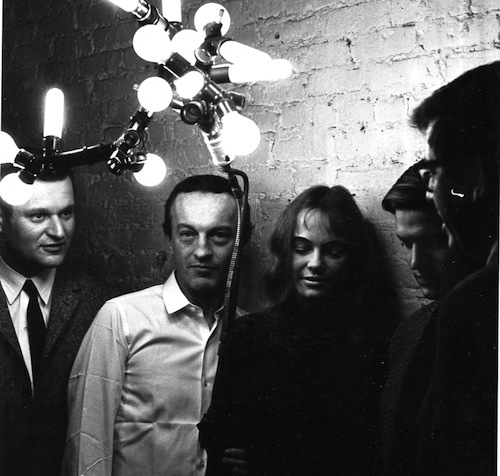In his workshop at the New School for Social Research, when I took it, in 1959, Kenneth Koch read and talked about John Ashbery’s work with his, Kenneth’s, customary sense of modern poetry as made from a play of associations. The surface of a poem was analogous to the expanse of a sensibility’s intensities and diffusions in the course of everyday events. Ashbery’s poem “Europe,” which appeared that same year, had a surface like none other.
However Ashbery himself decided to feel about it, “Europe” has been an important poem for me and many others who began writing around the time it was first published. You can see it in the early poems of Clark Coolidge, Dick Gallup, Ron Padgett, Bernadette Mayer, Lewis Warsh, and Ted Greenwald. It’s behind Ted Berrigan’s Sonnets and some of Frank O’Hara’s late poems, as well. One aspect was the way of arranging by phrase, or sometimes just a single word: “We moved up/glove/the field.” Writing by phrase derives partly from William Carlos Williams. The intervals in “Europe” are unique. A couple of years ago, a group of young San Francisco poets read it aloud, round-robin-fashion, at David Highsmith’s Books & Bookshelves. What with all the different voices, what came through strongly was the poem’s consistent pacing, its pulse, and the gathering of phrase and interval, accordingly.

At 20, aflame with new feelings for what poetry could be, I wrote poems mixing up Ashbery’s insouciant discontinuities with O’Hara’s passion and irritability. (I brought my own distress.) In the process, I discovered that Ashbery is a kind of Paganini, his demonic quality no less pervasive (and persuasive) then than in his later work. He transmutes irony to a fever pitch and regularly arrives by stealth, by way of all probable pratfalls, at the sublime.
In Ashbery it’s discrete lines that are memorable, not so much, as with O’Hara, whole poems. (There are exceptions: “A Blessing in Disguise,” for one, is built almost entirely of memorable lines.) How Ashbery fits his lines together, how they chime in from one to the next, is irresistible, that makes for the acceptance of his work “across the board,” in circles that ordinarily wouldn’t tolerate such misadventures. Whatever else his poems are or aren’t they carry the unmistakable ring of poetry, and for the most part they are nothing but. Hearing him read his poems aloud, you find yourself suspended for the duration, surprised at the end to land right back on your feet again.
Sometimes it seems the world could get along well enough retrieving one or two daily blips of Ashbery for sustenance, an imaginable national pastime of Sortes Ashberianae. Some samplings from the dish:
She is under heavy sedation seeing the world
the lake a lilac cube
and the fried bats they sell there
The constellations are rising in perfect order
I want you in the plural
and then I get this feeling of exaltation
young love, married love, and the love of an aged mother for her son
cannot understand
(feels deeply)
Heh? Eh?
And sudden day unbuttoned her blouse
Whose disappointment broke into a rainbow of tears
That should keep us busy for a while.
Born in New York in 1939, Bill Berkson was a poet, critic, teacher and sometime curator, who became ...
Read Full Biography

